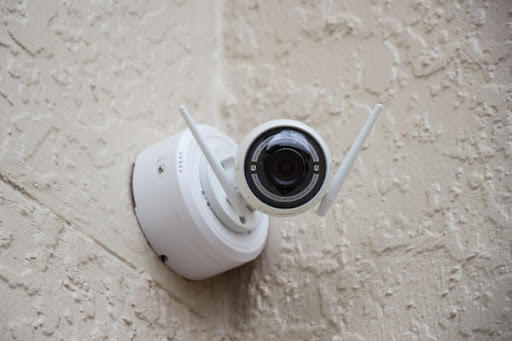Share This Article
As college students begin to move into their dorms for the semester, it’s important to keep safety and security in mind. There are a few simple things that can be done to help keep your dorm room safe. From surveillance solutions to trusted college counselors, we’ve got everything you need to know about staying safe, protected, and happy on campus. Keep reading for some safety and security tips for college dorms.
Invest in surveillance.
In recent years, college dorms have seen an increase in security concerns. One way to address these concerns is by installing a surveillance system. Alarms and video surveillance might be the right call. Finding the right surveillance solution can include a variety of security cameras and video management software that allow you to monitor activity in real-time or playback footage. Before selecting a surveillance system, you’ll want to consider the following: the number of cameras you might need, the type of camera, where you plan to put them, and your budget.
When selecting the number of cameras needed, you’ll want to take into account the size of the dorm and the layout of the rooms. You’ll also want to make sure that there are enough cameras to cover all areas of the dorm. The type of cameras needed will depend on the type of security concerns you’re trying to address. For example, if you’re concerned about theft, you’ll want to install surveillance cameras that can capture footage of the entire room. If you’re concerned about people entering the dorm without authorization, you’ll want to install cameras at the entrance of the dorm.
The location of the cameras is also important. You’ll want to make sure that the cameras are in a location where they can capture footage of the desired area. You’ll also want to make sure that the cameras are in a location where they will not be obstructed by objects. The video management software is important because it allows you to view and manage the footage from the cameras. The software should be easy to use and allow you to quickly find the footage that you need. The budget is also important to consider. The cost of a surveillance system will vary depending on the type of cameras and software that you select.
Talk to your college counselor.

A college guidance counselor is a professional with years of experience who helps students prepare for and select colleges and universities. Often, their job doesn’t end there. They also provide guidance on academic programs, scholarships, and financial aid. College counselors also work with students who are having academic or personal difficulties, including freshman in college. Because of the important relationship forged in high school, a counselor is a great resource for a first-year college student to reach out to if they are feeling unsafe and feel their security might be threatened. Trusted college advisors often continue to mentor and guide students even after the college application process has concluded.
When you graduate college, you might even find yourself wanting to pursue a career as a college advisor, so you can give back and mentor a whole new generation of college students with the tricky college application process.
Stay alert and informed.

The first safety and security tip for college dorms is to stay alert and be informed. This means keeping up with the latest news and events, both on and off campus. It is also important to be aware of your surroundings and who is around you. If you see something or someone that makes you feel uncomfortable, trust your instincts and take action. The second safety and security tip for college dorms is to create a safety plan. This includes developing a buddy system with friends, identifying safe places to go in case of an emergency, and having a plan for getting home. It is also important to keep your belongings secure and to never leave your dorm room or other areas of the campus unguarded. The third safety and security tip for college dorms is to know your rights. If you feel like you are being mistreated or are the victim of a crime, it is important to know what to do. You can find information on your school’s website or contact the campus police department for more information.
Secure your belongings.

The first step in securing your belongings is to make sure that you have a good locking system on your door. Many dorms have keyless entry systems, so be sure to take advantage of that feature and use your personalized code to keep your belongings safe. If your dorm does not have a keyless entry system, be sure to use a good quality lock and keep your key safe. Another way to secure your belongings is to keep them out of sight. Don’t leave your laptop or other valuables out in the open where they can be seen from the window. Instead, put them in a drawer or closet where they are not as visible. Finally, be sure to keep your belongings with you at all times. Don’t leave your laptop in the common room or your textbooks in your room when you go to the library. If you have to leave your belongings for a short period of time, be sure to lock them up in a safe place.
Overall, safety and security tips for college dorms are important to follow in order to protect yourself and your belongings. By being aware of your surroundings and taking precautions, you can reduce your risk of becoming a victim of crime.
